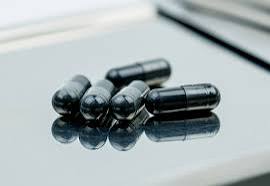Supplements
What Is Activated Charcoal?
Activated charcoal is used to treat stomach pains from gas, diarrhea, or other stomach issues.
It’s also used in certain cases of drug overdose and accidental poisoning, and to help soothe the itching sensation that some people feel while receiving dialysis treatment.
A common over-the-counter product, activated charcoal is sold under brand names such as Optimum Charcoal, Liqui-Char, Actidose Aqua, Charcoal Plus DS, EZ Char, and Insta-Char.
It works by binding to toxins and forming a large, bulky complex that’s too large for the body to absorb.
It can also block the liver from processing or breaking down certain toxins.
A special form of carbon, the use of activated charcoal dates back thousands of years to the times of the ancient Egyptians
Activated Charcoal and Teeth Whitening
According to anecdotal evidence, activated charcoal in powder form can be brushed onto teeth to remove stains and whiten their appearance.
This is thought to work because activated charcoal binds to toxins and pulls them away from the surface of the teeth.
Anecdotal reports also suggest that activated charcoal may somehow help prevent cavities and tooth decay by making the mouth less acidic.
Activated Charcoal and Skin Care
Some healthcare providers specializing in natural medicine state that activated charcoal can help clear the body of toxins and improve the health and appearance of skin.
However, many medical professionals disagree over the use, safety, and benefits of activated charcoal.
The data supporting the benefit of activated charcoal for treating conditions such as gas, cholesterol, skin conditions, and other health issues remains unclear.
Activated Charcoal Warnings
You should not take activated charcoal if:
You have low levels of fluid in the body or are dehydratedAre bleeding severely (hemorrhaging)You have problems with your digestion like blockages or poor movement of food and substances through your stomach and intestinesYou have holes or tears in your digestive tractYou have had surgery recently
Talk to your doctor before taking activated charcoal if you have kidney or liver disease.
Also, if you have been taking activated charcoal for diarrhea for 2 days or more and your diarrhea has not gone away, you should stop taking it.
Activated Charcoal and Overdose
It’s important to know that, while activated charcoal can treat overdose and poisoning effectively in some situations, it does not work in all of them.
If you or someone you know has overdosed on the following, activated charcoal will not work:
CyanideLithiumEthanol (drinking alcohol) or methanolMineral acids like boric acid, phosphoric acid, sulfuric acid, and nitric acidOrganic solvents formaldehyde, benzene, acetone, isopropyl alcohol, and chloroformAlkali metals like potassium, magnesium, and sodiumPregnancy and Activated Charcoal
Activated charcoal falls under the FDA’s Pregnancy Category C, which means that studies show that it can harm a developing baby in animals but its safety in pregnant women is unknown.
Regardless, you should tell your doctor if you are pregnant or plan to become pregnant before taking this medication.
To date, the safety of activated charcoal in breastfeeding mothers remains unclear.
You should talk to your doctor if you are breastfeeding or plan to breastfeed before using activated charcoal
Activated Charcoal Side Effects
Common side effects: Diarrhea, constipation, or vomitingBlack stoolSerious Side Effects:
Contact your doctor right away if you experience any of the following symptoms after taking activated charcoal:
Blockage in the stomach or intestinesHard dry lumps of stool that get stuck in the gut (fecal impaction)Breathing in fluid, mucus, or foreign materials into the lungs, known as aspirationObliterative bronchiolitis, a life-threatening condition in which the bronchial tubes of the lungs narrow, develop scar tissue, and have trouble taking up oxygen
Activated Charcoal Interactions
It’s always important to share with your doctor and pharmacist all of the medications you are taking.
This includes prescription and over-the-counter medications, supplements like vitamins and other dietary supplements (nutritional shakes, protein powders, etc.), herbals, and any illegal and recreational drugs.
Activated charcoal can block the absorption of other drugs, so it’s important not take it with other medications, herbals, or supplements.
In general, if you’re taking other medications while taking activated charcoal, you should take the activated charcoal at least 1 hour before or 2 hours after taking the other drugs.
The following drugs are known to interact with activated charcoal:
Precose (acarbose)Ipecac or Syrup of ipecacCancer drugs Arava (leflunomide) and Avbagio (teriflunomide)Lanoxin or Digox (digoxin)The transplant drugs mycophenolate mofetil and mycophenolic acidAcetadote (acetylcysteine)Electrolytes and polyethylene glycol (PEG)
Activated Charcoal Dosage
Activated charcoal comes in liquid form and powder and is available in doses of 15g/72 ml, 25g/ 120 ml, and 50 g/ 240 ml.
Ask your doctor, pharmacist, or poison control center operator for information on how and when to use it in cases of overdose.

